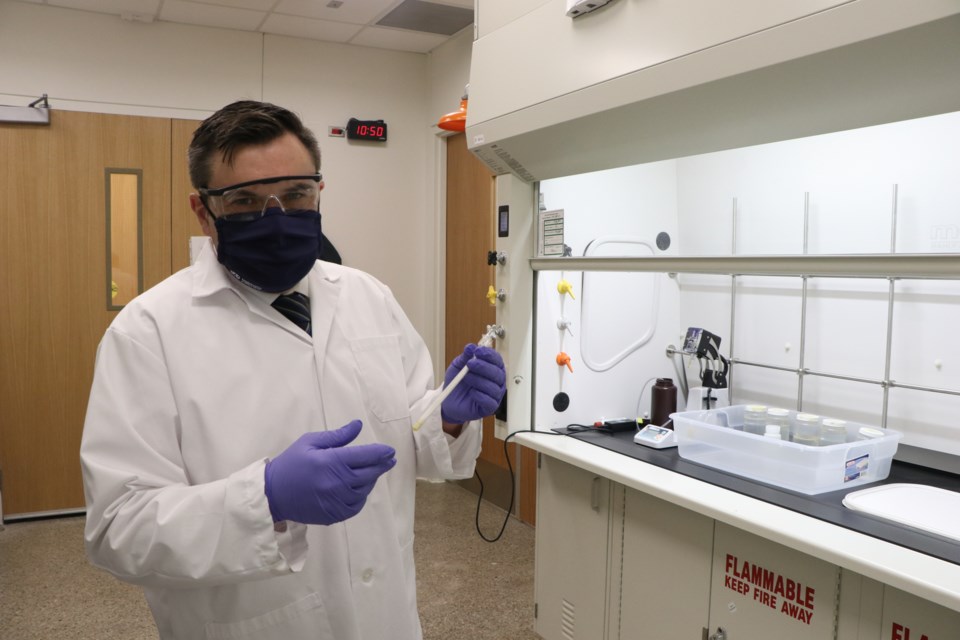THUNDER BAY — A research team at the University of Windsor has confirmed the presence of "easily measurable" amounts of COVID-19 genetic material in raw sewage from the City of Thunder Bay.
The city began taking sewage samples at the Atlantic Avenue treatment plant last month.
The city sends the samples to Windsor for analysis as part of an environment ministry cross-Ontario pilot research project that uses sewage to monitor the spread of the COVID-19 virus in individual communities.
Studies have shown that a significant proportion of infected people shed the virus in their stool, even before any symptoms appear.
Michael McKay is the executive director of the University of Windsor's Great Lakes Centre for Environmental Research, where sewage from some southwestern Ontario cities as well as Thunder Bay is being analyzed.
He says recent samples from Thunder Bay over a period of three weeks all contained easily measurable remnants of the virus.
"Looking at the clinical cases in the Thunder Bay area, that wasn't surprising to us. Had Thunder Bay had very few cases of COVID-19...we would likely have a baseline of no detection or very low detection of virus in the wastewater," McKay said.
He added "by the time we started receiving samples, Thunder Bay was into what looks to be a bit of a prolonged resurgence of infection in the community."
Sewage testing for the virus has been described as an early warning system that can be used to give health authorities more time to respond to trends.
Currently, samples are only collected in Thunder Bay once weekly, but that could be increased to three times a week in the future.
McKay said more frequent testing will validate the results and benefit the public health response by showing the prevalence of the virus well ahead of clinical confirmation.
"When we're talking about this potential for early alert, we're talking in the order of three to 10 days ahead. If you're only sampling once a week, it's not going to be as helpful," McKay said.
The Windsor team is already reporting its findings back to the Thunder Bay District Health Unit, the City of Thunder Bay, and the environment ministry which has established a provincial database for sewage testing.
So far, the TBDHU has not indicated how it plans to use the data, but medical officer of health Dr. Janet DeMille calls the project "a real opportunity."
In Windsor, where testing started last year, the area's medical officer of health holds a weekly news conference where he presents a graph of the local wastewater/COVID data.
McKay noted "He also includes a disclaimer that this is a research effort, and the information can be used by public health, but it's an independent line of information that they use in concert with the other clinical information they receive, to make decisions."
He said his team expects to begin a trial search for COVID-19 variants in wastewater in the near future.
Scientists at the University of Ottawa have already optimized a method to target the so-called U.K variant in sewage samples.
"There's a wealth of knowledge literally beneath our feet, in the sewer system," McKay said.
"Right now, we're turning all our attention toward its use in detecting COVID. But now that we're set up to do this, continuing on and using it to gauge the public health of the community moving forward...I think there's a lot of interest in doing that."
